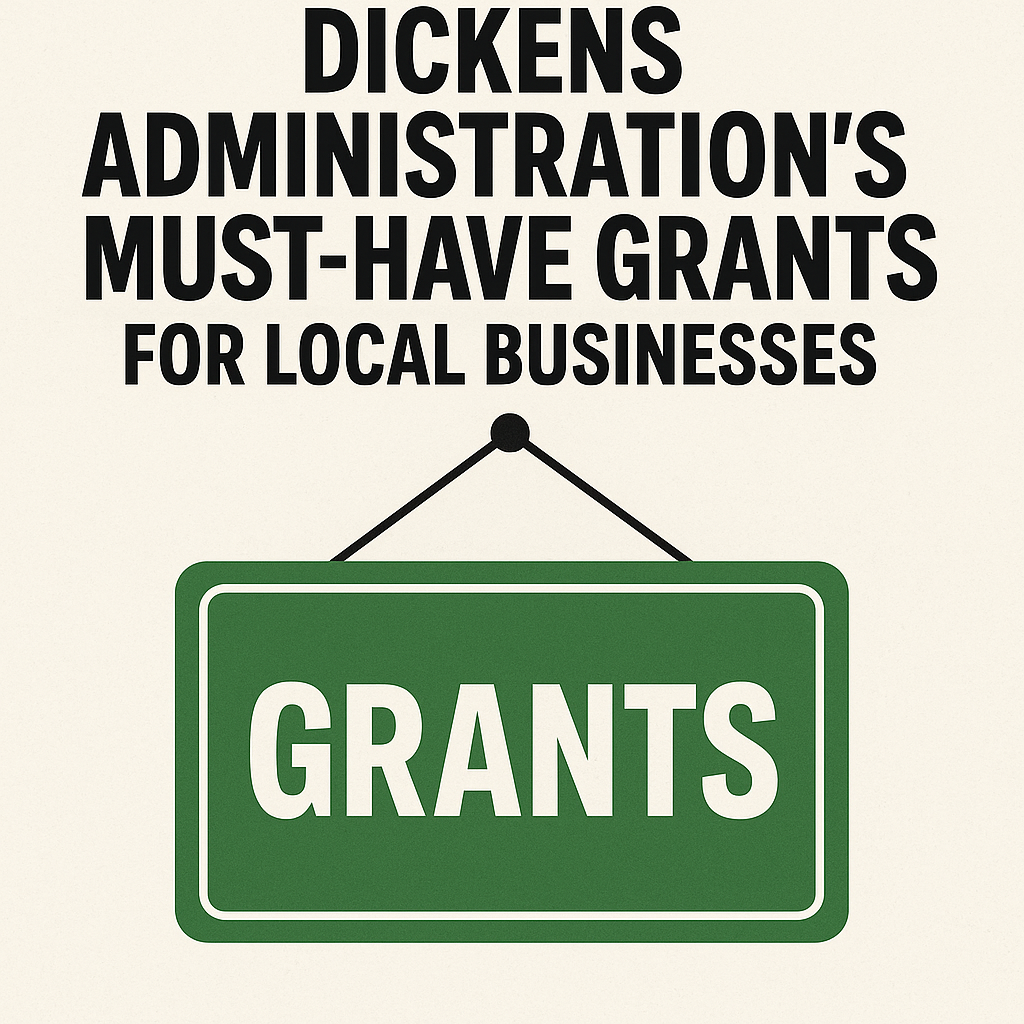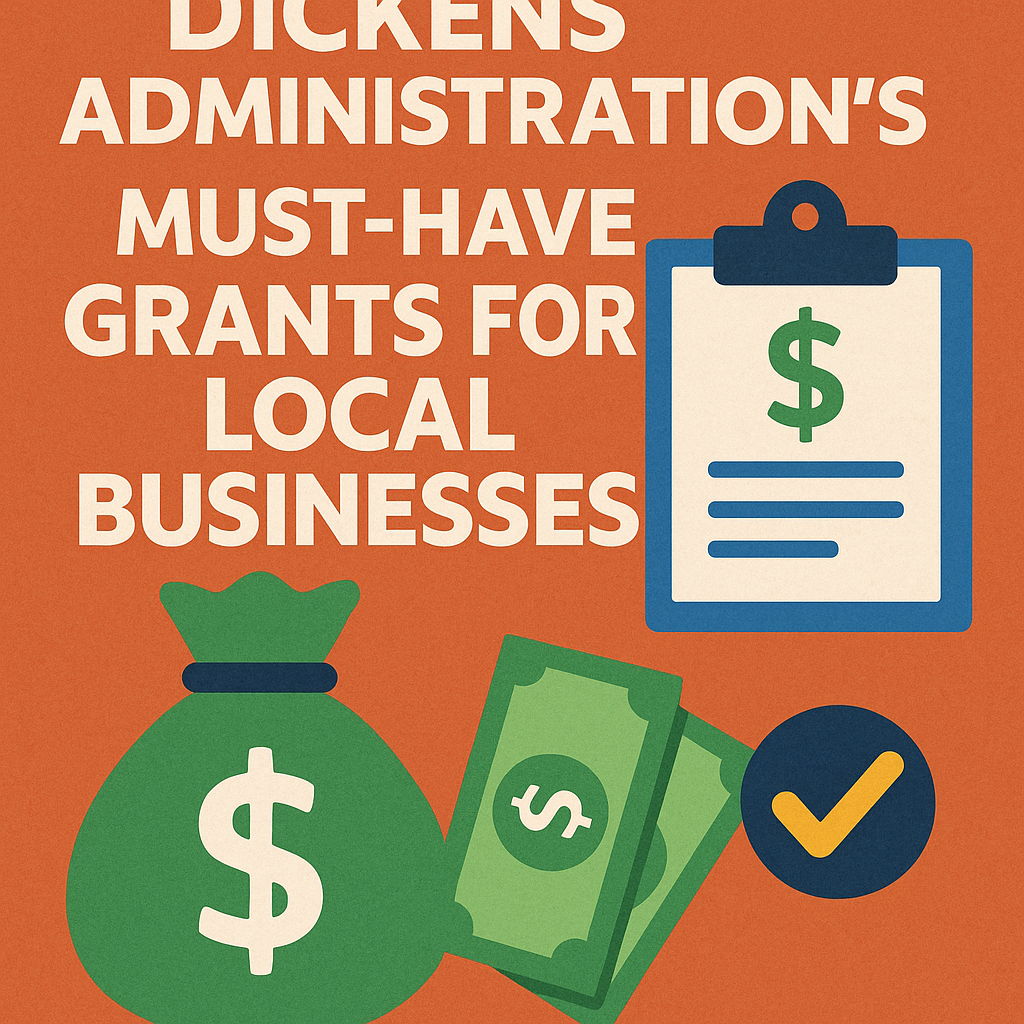Dickens Administration’s Must-Have Grants for Local Businesses
Dickens Administration’s Must-Have Grants for Local Businesses
The Dickens Administration’s must-have grants for local businesses are drawing attention as a significant step toward invigorating the local economy and supporting community entrepreneurship in Atlanta. In an era where small businesses face numerous challenges, these initiatives could provide crucial financial boosts to help them thrive.
Overview of the Grants

Recently, the Dickens Administration, in partnership with Invest Atlanta, announced a commitment of $250,000 in small business improvement grants specifically aimed at local legacy businesses. This announcement marks a pivotal moment for established businesses that have historically contributed to the vibrancy of their neighborhoods but now may struggle due to economic shifts exacerbated by events such as the COVID-19 pandemic.
Target Audience: Local Legacy Businesses
The primary focus of these grants is on “legacy businesses,” a term that encompasses long-standing companies that have deep ties to their communities. According to sources from the Atlanta Daily World, these businesses often serve as cultural touchstones, and their closure could lead to community decay. In targeting such entities, the Dickens Administration seeks to reinforce Atlanta’s economic landscape by preserving its unique identity rooted in local commerce.
By offering the grants specifically to businesses that have been in operation for over 10 years, the administration underscores the importance of stability and legacy in terms of not just revenue, but also community engagement and identity. Local businesses that qualify for these grants can utilize the funds for essential improvements, including renovations, infrastructure upgrades, and even marketing efforts.
Economic Context: Why These Grants Matter
The need for supportive measures like these grants is underscored by broader economic trends and challenges facing small businesses today. Many businesses are still trying to recover from pandemic-related losses while facing ongoing supply chain issues and inflationary pressures. As highlighted by reports from The Atlanta Voice, the economic landscape remains precarious, making targeted assistance not just beneficial, but essential.
Grants vs. Other Forms of Support
While grants provide direct financial relief, other forms of aid such as low-interest loans and tax incentives are also available to local businesses. However, grants stand out because they don’t have to be repaid, making them especially attractive to struggling business owners. The consensus across multiple sources is that while a multifaceted approach is beneficial, grants can make an immediate impact, providing businesses with the flexibility to react to urgent needs promptly.
Opposing views also exist; some critics argue that funding should prioritize newer businesses that could introduce innovation into the marketplace. However, proponents of the Dickens Administration’s focus argue that preserving established businesses fosters community solidarity and economic stability.
Closing Thoughts: A Measured Success
The Dickens Administration’s initiative to provide must-have grants for local businesses represents a forward-thinking approach to economic empowerment in Atlanta. The commitment to supporting legacy businesses is showcasing a recognition that the health of a community is inseparable from the vitality of its local enterprises.
As we continue to monitor the evolving economic landscape, both the successes and challenges of this initiative will be critical to understand. Will these grants uplift local businesses enough to make a significant difference? Time will tell, but for now, this initiative offers a glimmer of hope for many who have dedicated their lives to their businesses and communities.
In an ever-changing economic environment, the focus remains clear: fostering support for the engines of local economies—our small businesses—can lead to a stronger, more resilient Atlanta. The ongoing discussion surrounding these grants reflects a broader need for community engagement and innovative solutions for sustained local growth.















